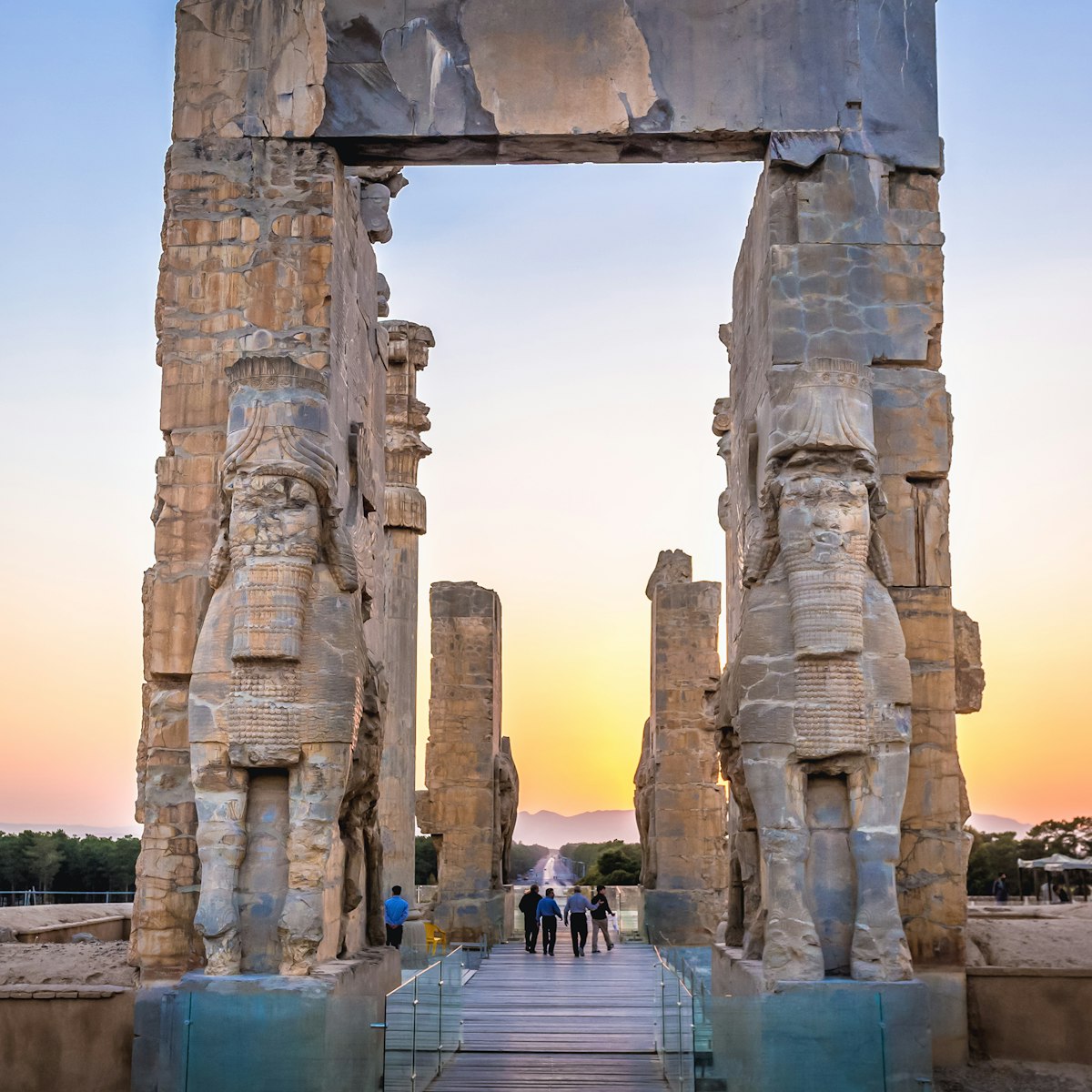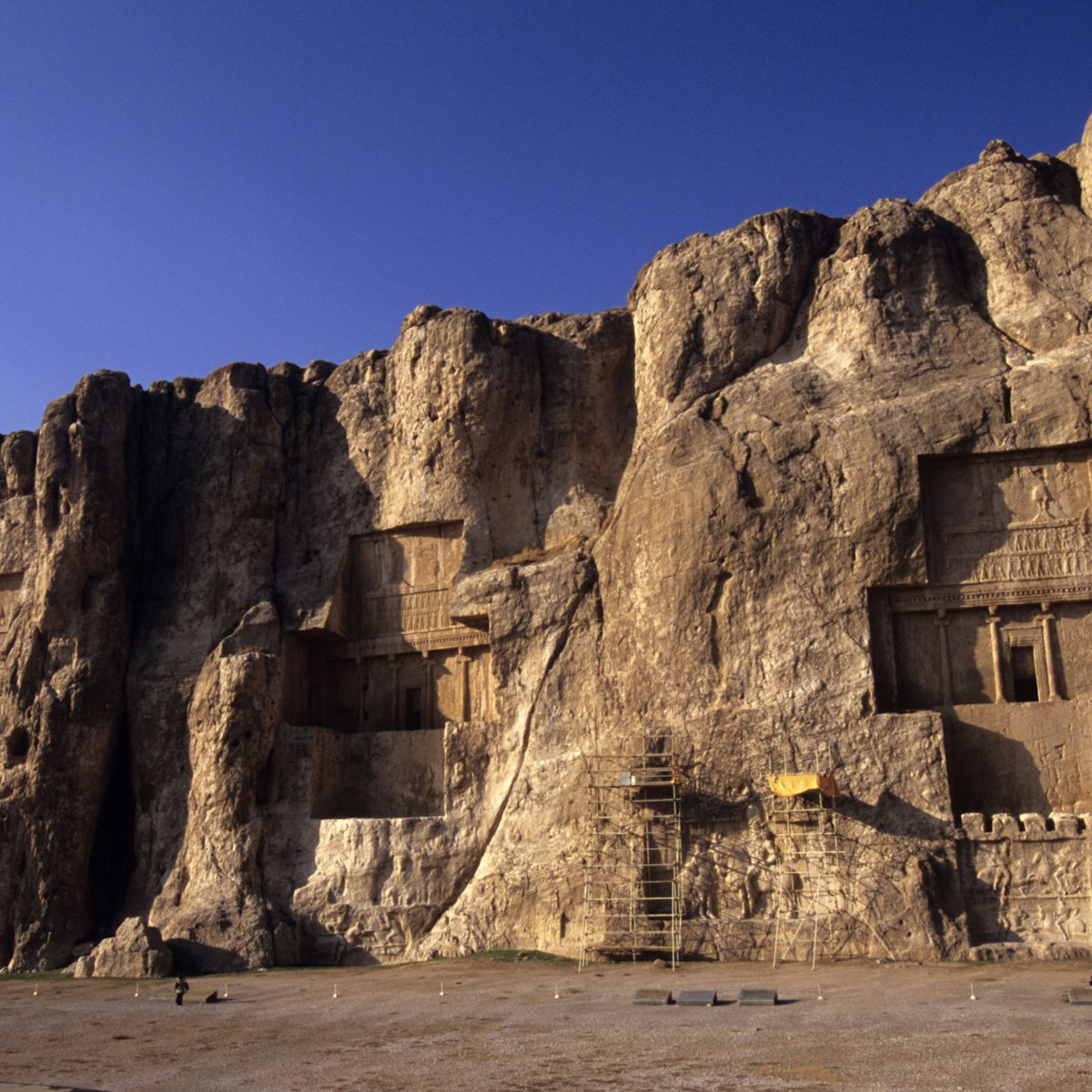Constructed on a stone terrace by Xerxes I, the Apadana Palace lies largely in ruins. It's thought that this is where foreign delegations would have been received by the king and the splendour accompanying their audience is captured in the bas-reliefs on the northern wall. It's the exquisite reliefs of the Apadana Staircase on the eastern wall, however, that are the star attraction. A virtual log of visitors to Persepolis from across the Achaemenid Empire, they continue to draw people from around the world today.
Lonely Planet's must-see attractions

0.04 MILES
The stairs, which are guarded by stone soldiers, are decorated by an exceptionally finely crafted frieze in three panels. Each panel is divided into…

0.07 MILES
The bronze trumpets that once heralded the arrival of important foreign delegations (a fragment of which is on display in the museum) may now be silent,…

0.05 MILES
In its heyday Persepolis was one of four key cities at the heart of an empire that spread from the Indus River to Ethiopia. Its original name was Parsa…

3.81 MILES
The spectacular rock tombs at Naqsh-e Rostam are a must-see. Hewn out of a cliff high above the ground, the four tombs are believed to be those of Darius…

24.37 MILES
Proud and alone on the Morghab Plain, the Tomb of Cyrus is the first of the monuments encountered on entering the site of Pasargadae. The tomb consists of…

29.22 MILES
There is no better place to understand Hafez’s place in the nation’s psyche than at his tomb and the memorial garden within which it is set. Iranians have…

0.11 MILES
The palaces in the southwestern corner of the site are believed to have been constructed during the reigns of Darius and Xerxes. The Tachara is easily the…

0.1 MILES
With an extravagant hall measuring almost 70 sq metres and supported by 100 stone columns, this palace formed one of two principal reception areas in…
Nearby Iran attractions
0.04 MILES
The stairs, which are guarded by stone soldiers, are decorated by an exceptionally finely crafted frieze in three panels. Each panel is divided into…
0.05 MILES
In its heyday Persepolis was one of four key cities at the heart of an empire that spread from the Indus River to Ethiopia. Its original name was Parsa…
0.07 MILES
The bronze trumpets that once heralded the arrival of important foreign delegations (a fragment of which is on display in the museum) may now be silent,…
0.09 MILES
Persepolis sits on top of a great plinth of stone blocks and today, as in ancient times, visitors seeking entry to the city must approach this elevated…
0.1 MILES
With an extravagant hall measuring almost 70 sq metres and supported by 100 stone columns, this palace formed one of two principal reception areas in…
0.11 MILES
The palaces in the southwestern corner of the site are believed to have been constructed during the reigns of Darius and Xerxes. The Tachara is easily the…
0.12 MILES
Restored in the 1930s, what was perhaps once the royal harem now houses the museum and administrative offices. The museum contains a stone foundation…
0.13 MILES
The southeastern corner of the site is dominated by Darius’ Treasury, one of the earliest structures at Persepolis. Archaeologists have found stone…